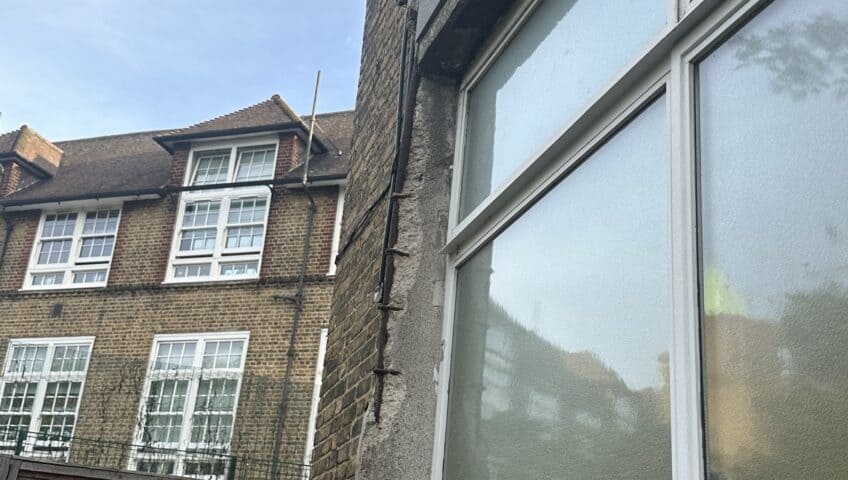Common Causes Of Damaged Concrete, Concrete is a durable and versatile building material, but it's not indestructible. Over time, concrete can be damaged by a variety of factors.
At London Structural Repairs, we’ve dealt with plenty of concrete walls and floors that have become damaged over time. Out of all the projects that we’ve worked on, there are some types of concrete damage that are more common than others.
Here are three common causes of concrete damage and how to prevent them:
1. Water Concrete Damage
Water is one of the biggest enemies of concrete. When water seeps into concrete, it can cause a number of problems, including:
- Cracking: Water can weaken the concrete, making it more susceptible to cracking.
- Spalling: This is when the surface of the concrete starts to chip and flake off.
- Corrosion of reinforcing steel: If the concrete is reinforced with steel, water can cause the steel to rust. This can weaken the concrete and cause it to crack.
How to prevent water damage:
- Seal the concrete: Applying a sealant to the surface of the concrete can help to prevent water from penetrating.
- Repair cracks promptly: Any cracks in the concrete should be repaired as soon as possible.
- Install gutters and downspouts: This will help to direct water away from the foundation of your building.
- Grade the soil around your foundation: This will help to prevent water from pooling around your foundation.
2. Freeze-Thaw Cycles
In cold climates, concrete can be damaged by freeze-thaw cycles. When water seeps into the concrete and then freezes, it expands. This expansion can cause the concrete to crack.
How to prevent freeze-thaw damage:
- Seal the concrete: As mentioned above, sealing the concrete can help to prevent water from penetrating.
- Use air-entraining concrete: This type of concrete contains tiny air bubbles that help to prevent damage from freeze-thaw cycles.
- Insulate the concrete: Insulating the concrete can help to protect it from the cold.
3. Chemical Concrete Damage
Concrete can also be damaged by chemicals, such as acid rain, de-icing salts, and fertilisers. These chemicals can react with the concrete and cause it to weaken and deteriorate.
How to prevent chemical damage:
- Seal the concrete: As mentioned above, sealing the concrete can help to protect it from chemicals.
- Clean up spills promptly: If any chemicals spill on the concrete, clean them up immediately.
- Use de-icing products that are safe for concrete.
By taking steps to prevent these three common causes of concrete damage, you can help extend the life of your concrete structures.
If you have concrete that has become damaged over time, it’s important to get the experts to help you conduct any repairs. If you’d like to talk to our team about your project, get in touch with us today.

